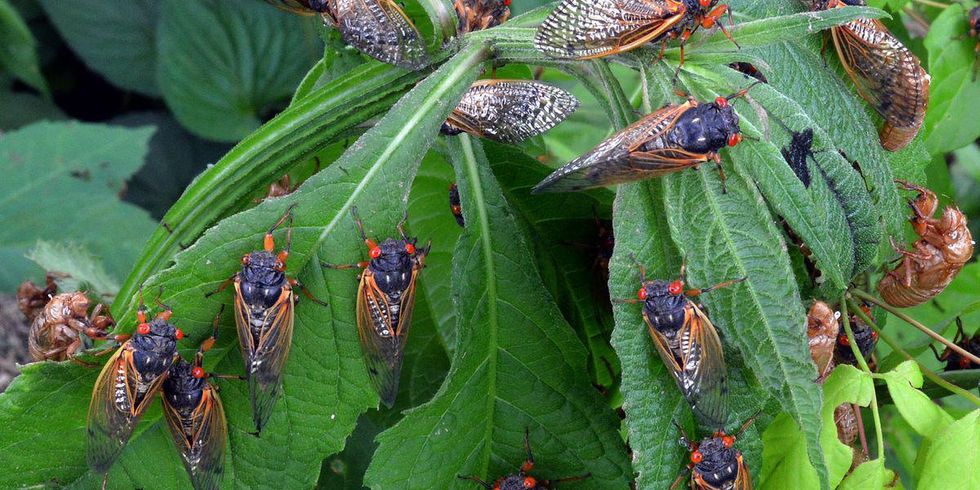
The Cicadas Are Coming

Cicada

A great awakening is upon us. Something is stirring deep underground, prepared to burst forth. Yes, for the first time in seventeen years, the cicadas are rising.
If you haven’t already heard, once every seventeen years, billions — maybe trillions — of cicadas that had been lying below ground awaken. While some cicadas are veritable snowbirds, coming out every summer, other cicadas wait anywhere from 13 to 17 years to emerge. There are more than 3,000 species of cicada, which are separated into twelve broods, each of which rise up on different time scales.

This 17-year species, known as Brood X, is spread out all across the Eastern United States. From mid-May to late June, they will appear in Georgia, Kentucky, North Carolina, Virginia, Tennessee, Illinois, Indiana, Michigan, Ohio, and parts of New Jersey, New York, Pennsylvania, and West Virginia.
The last time these little crawlers saw daylight was 2004, when — as newly hatched nymphs — they fell out of the trees and dug their ways down into the earth. Underground, they’ve been feeding on sap from trees and undergoing five stages of development in preparation for their big blowout. They are active underground, spending their days drinking sap and making labyrinthine tunnels.
When the cicadas rise, they do so in order to sing, mate, and die. Male cicadas are responsible for making the incredible amount of noise you’ll certainly hear if you’re located near the cicadas’ gigantic springtime blowout. Each species of cicada produces a slightly different song, which can reach up to 100 decibels, roughly as loud as a tractor or motorbike. The sound is produced when males flex their tymbals, small drumlike organs located in their abdomens, and they typically function as mating calls.
Females are responsible for laying hundreds of eggs, which they will place on tree branches. The risen cicadas will spend about four weeks aboveground before they die. When the eggs hatch, a new generation of cicadas will plummet from the trees and burrow underground to restart their endless cycle.
No one knows exactly why cicadas stay underground for so long, or why they rise in such specific, regular timescales. The prevailing theory is that their long period of hiding makes it difficult for predators to evolve to target them, and when they do rise they have safety in numbers. Another theory posits that cicadas track time by monitoring the changing seasons.
Regardless of how and why, they are coming. They are coming to sing and make love before they die.
If you happen to see a cicada, try not to kill them. They have been waiting for this moment for literally all of their lives, and they will not harm you. Also, if you try to use pesticides to get rid of them, it could sicken other predators and also there are so many of them that any attempt to stop them will likely be futile. If you’re in the way of Brood X, you’re in for a loud, hot summer of love. And as the pandemic slowly fades with the onset of vaccinations, who could ask for anything else?


